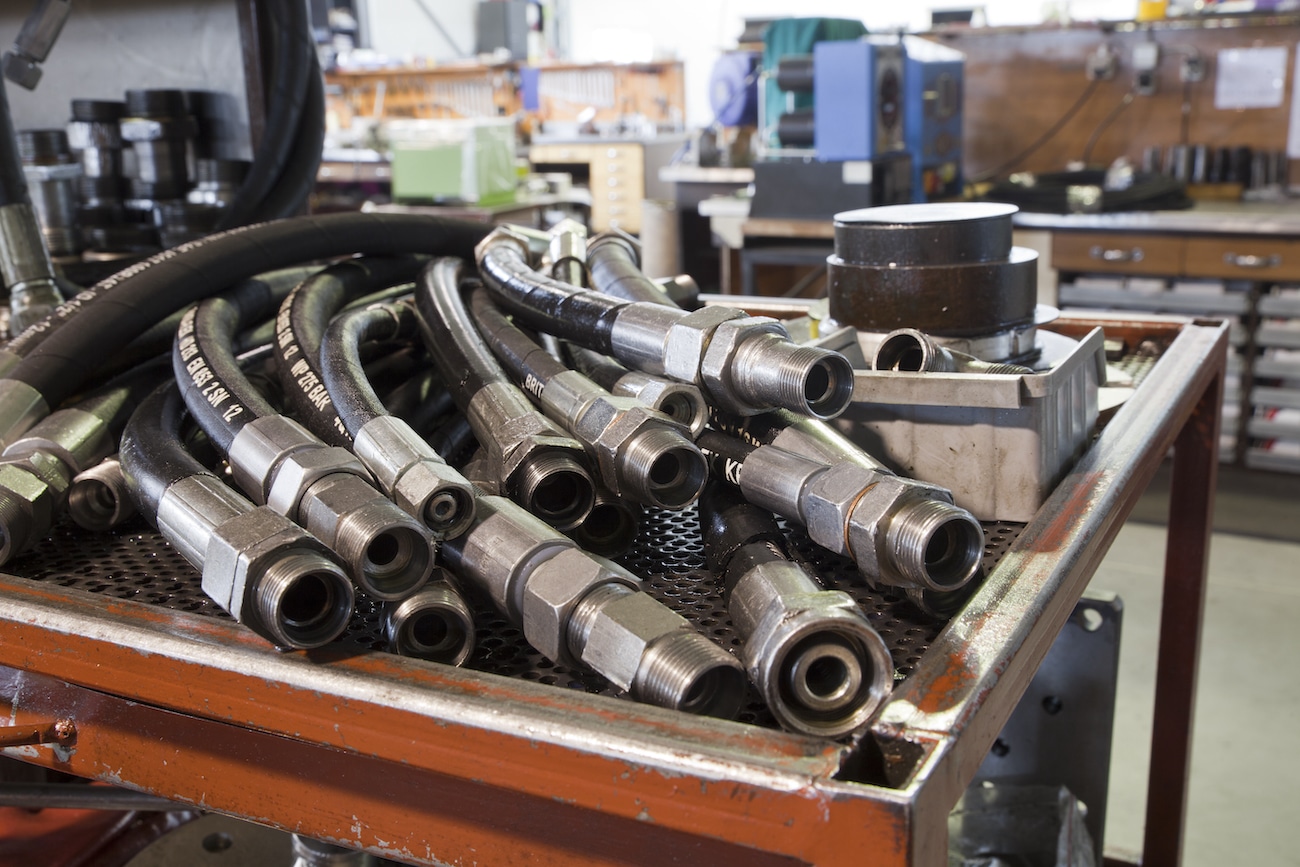The Power of Hydraulics
Hydraulic systems, known for their ability to generate massive amounts of power through the application of simple physics principles, have revolutionized the world of machinery. Now lets review the mechanics of hydraulics, exploring their incredible power and diverse applications in various industries.
Understanding Hydraulics
At its core, a hydraulic system transmits power using pressurized fluid, typically oil. The basic components include a pump, reservoir, valves, fluid, motor, hydraulic hoses and cylinders. The system works on Pascal’s Principle, which states that pressure applied to a confined fluid is transmitted undiminished in all directions.
The Mechanics of Hydraulic Power
- The Pump: This is where it all starts. The pump converts mechanical energy into fluid power by moving hydraulic fluid from the reservoir into the system.
- Transmission of Power: The fluid travels through hydraulic hoses and pipes, reaching hydraulic cylinders and motors.
- Conversion to Mechanical Energy: The pressurized fluid acts upon the piston in the cylinder, creating linear motion, or on the motor creating rotary motion.
- Control System: Valves regulate the flow of the fluid, controlling the direction, pressure, and flow rate, thus managing the power output.
Advantages of Hydraulic Systems
- Power-to-Weight Ratio: Hydraulics offer a tremendous power output with minimal weight and size, making them ideal for heavy-duty applications.
- Precision and Control: The ease of controlling speed, torque, and position makes hydraulics suitable for various precision-demanding applications.
- Overload Protection: Hydraulics provide natural overload protection, helping to prevent mechanical failures.
- Versatility: The ability to use different types of fluids makes hydraulic systems adaptable to various operating environments.
The Power of Hydraulics in Different Machinery
- Construction Equipment: From excavators to bulldozers, hydraulic systems are the driving force behind most construction machinery. They provide the necessary power to lift heavy loads, dig, and move earth.
- Automotive Applications: Hydraulic brakes in vehicles are a prime example, offering reliable and efficient braking power.
- Manufacturing Machinery: In industries, hydraulic systems are used in presses, conveyors, and robotic arms, providing the required force in a controlled manner.
- Agricultural Equipment: Tractors, combines, and other farming equipment rely on hydraulics for various functions, from plowing fields to harvesting crops.
- Aerospace Applications: Hydraulics play a critical role in controlling aircraft components like landing gear, flaps, and brakes.
- Marine Applications: Steering systems, stabilizers, and hoists in boats and ships often utilize hydraulics for efficient operation.
Hydraulic Systems in Everyday Life
Beyond industrial and commercial applications, hydraulics are part of everyday life:
- Elevators and Escalators: Many of these systems rely on hydraulics for smooth operation.
- Amusement Park Rides: Hydraulic systems are used to control motion and ensure safety.
- Fitness Equipment: Resistance in some gym equipment is created using hydraulics.
Innovations and Advancements in Hydraulic Technology
The evolution of hydraulics has been marked by significant innovations:
- Electro-Hydraulic Systems: Combining electronics with hydraulics has led to smarter, more efficient systems.
- Environmentally Friendly Fluids: The development of biodegradable hydraulic fluids reduces environmental impact.
- Miniaturization: Advances in technology have led to smaller, more compact hydraulic components.
Challenges and Solutions in Hydraulic Systems
While powerful, hydraulic systems face challenges:
- Leakage and Contamination: Proper sealing and filtration are crucial to prevent leaks and keep the fluid clean.
- Maintenance: Regular maintenance is essential to ensure longevity and efficiency.
- Temperature Sensitivity: Hydraulic hoses and fluids can be sensitive to extreme temperatures, requiring careful system design.
Safety Considerations in Hydraulic Machinery
Safety is paramount when working with hydraulic machinery:
- Regular Inspections: Frequent checks can prevent accidents and equipment failure.
- Training: Operators should be trained to handle hydraulic machinery safely.
- Emergency Procedures: Having clear procedures in case of hydraulic hose failure is crucial.
The Future of Hydraulics
The future of hydraulics is promising, with ongoing research in areas like:
- Energy Efficiency: Developing more efficient systems to reduce energy consumption.
- Integration with Renewable Energy: Combining hydraulics with renewable energy sources for sustainable solutions.
- Advanced Materials: Exploring new materials for enhanced performance and durability.
The power of hydraulic hoses in machinery is undeniable. From lifting heavy loads to precise control in manufacturing, hydraulics have become an integral part of modern engineering and technology. The ongoing advancements in hydraulic systems promise even more innovative applications, ensuring that hydraulics will continue to be a driving force in the machinery of the future.
Come in to Chenango Supply in Punta Gorda today. We can make hydraulic hoses of all sizes and types. When a peice of equipment goes down, you need to get it back online and working as soon as possible. Most hoses can be made while you wait. We are Southwest Florida‘s largest Mahindra and ROXOR dealer. Are you familiar with the ultimate UTV?






